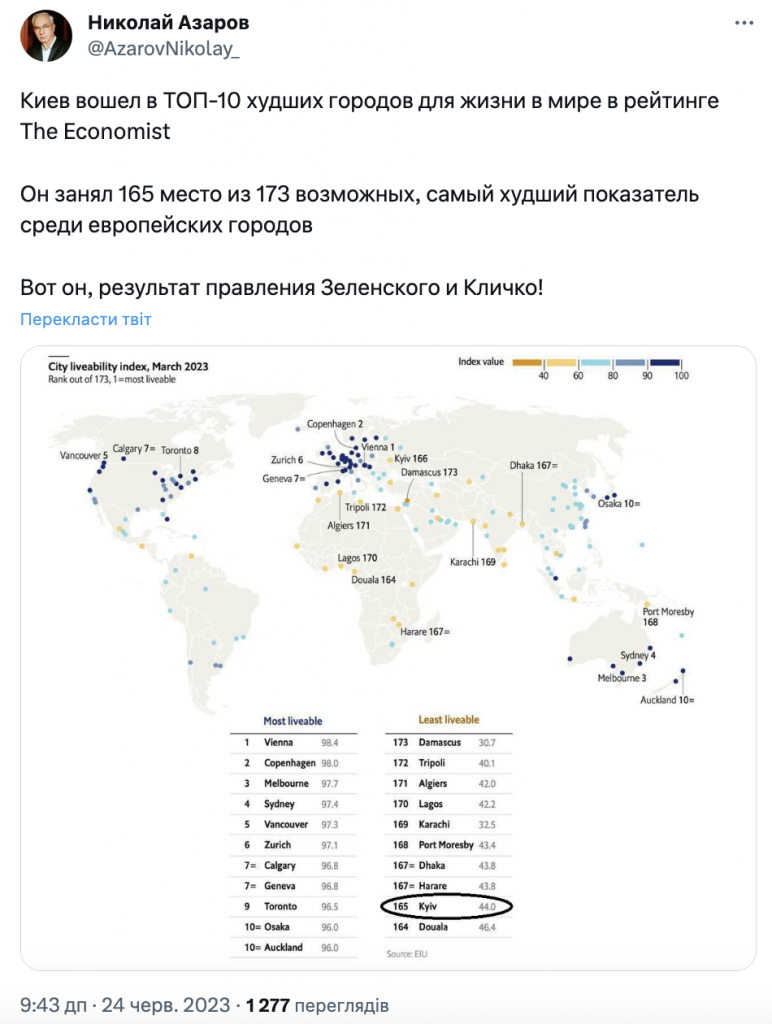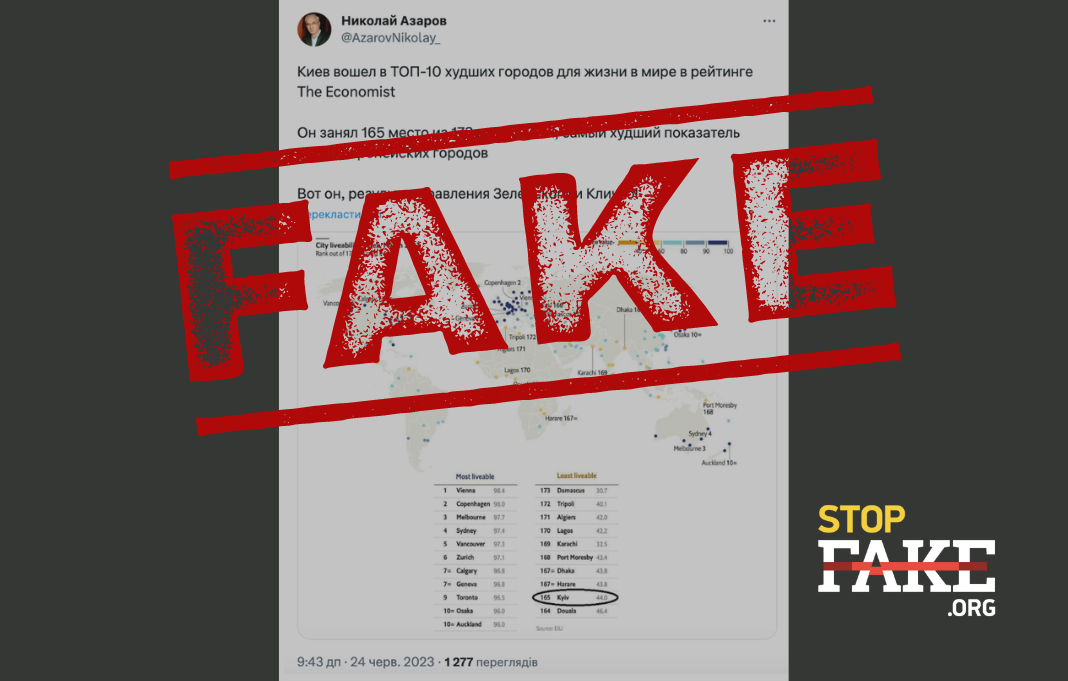The drop in Kyiv’s rating is not due to the rule of Zelenskyy and Klitschko, but to the large-scale Russian invasion of Ukraine. The Economist study notes that Kyiv’s score has dropped by 5.9 percentage points compared to 2021 because “its stability and infrastructure damaged by the war.” In 2022, The Economist was forced to remove Kyiv from the ranking altogether due to the hostilities in the Kyiv region.
Former Prime Minister Mykola Azarov, who fled to Russia, and some netizens after him, spread the word that according to The Economist, Kyiv was among the top 10 worst cities to live in the world, and this was allegedly the result of the “disorderly rule” of President Volodymyr Zelenskyy and Mayor Vitali Klitschko.
On June 21, 2023, The Economist actually published its annual liveability ranking of cities, placing Kyiv in the top ten least liveable. The Economist analysts evaluated living conditions in 173 cities in five categories: stability, healthcare, culture & environment, education, and infrastructure. According to their ranking, in 2023, Kyiv ranks 165th in terms of livability. The index of living conditions in Kyiv is 44.0 points.

However, Kyiv’s 165th position in the ranking is not due to the “disorderly rule” of Volodymyr Zelenskyy and Vitali Klitschko, but to Russia’s large-scale invasion of Ukraine. StopFake journalists have read the extended version of The Economist’s research. It says that, “the city’s score has fallen by 5.9 percentage points since 2021 owing to the damage the war has done to its stability, infrastructure and general liveability.” The Economist analysts also point out that the city received only 23.2 out of 100 points in infrastructure due to continuous Russian shelling, which is the lowest score in the index.
In addition, the Russian invasion of Ukraine has also affected the assessment of other Eastern European cities, such as Warsaw and Budapest. For example, The Economist analysts note that in 2022, the stability of these cities decreased due to their proximity to the war zone. In 2023, Russia’s war against Ukraine and the economic and political turmoil it caused will also affect life in many European cities, according to The Economist.
Due to Russia’s large-scale invasion of Ukraine, The Economist excluded Kyiv from its 2022 ranking. As a result, Kyiv will not be included in the 2023 ranking in many categories, as researchers do not have data for the previous year.
At the end of December 2022, the Kyiv City Council estimated that since February 24, 2022, more than 678 objects in Kyiv had been damaged by Russian attacks. Among them, more than 350 residential buildings, 77 educational institutions, 80 housing and communal facilities, 25 transport infrastructure facilities, and 26 healthcare facilities.
Earlier, StopFake journalists refuted the disinformation that anti-Russian sanctions had destroyed Ukraine’s economy.





